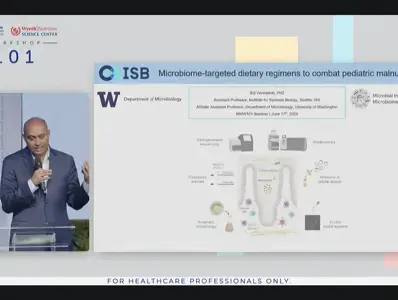Microbiome-targeted dietary regiments to combat pediatric malnutrition
Undernutrition in children is a pressing issue globally, and it is brought about by food insecurity, as well as environmental factors such as maternal nutritional status, poor sanitation, and infection by pathogens. The gut microbiota and its impacts on the host’s ability to harvest nutrients from the diet and build up the immune response shows promise as a potential treatment for undernutrition. Prof. Siddarth Venkatesh expounds on how manipulation of the microbiota can help mitigate the long-term effects of pediatric malnutrition. Studies of healthy children versus those with severe acute malnutrition show disparity in gut maturity, occurring alongside stunting and metabolic abnormalities. Pre-clinical studies show that microbiota-directed complementary foods (MDCF) has a positive impact on the abundance of the strains, weight change, and bone density of the gnotobiotic animal models. In humans, addressing childhood malnutrition with MDCF has been shown in these studies to support linear growth.
If you liked this post you may also like

